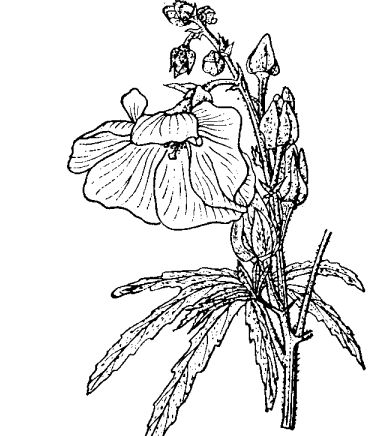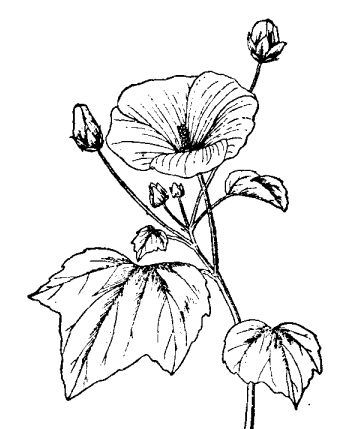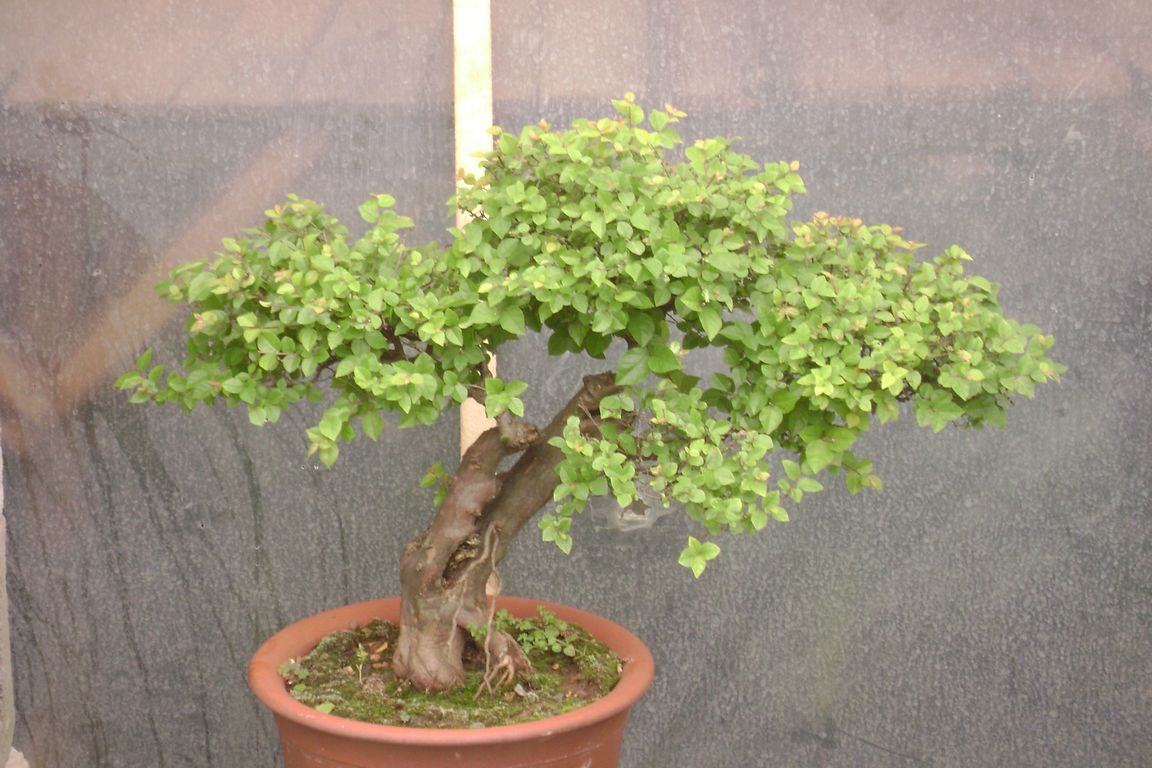Cultivation and planting techniques of Abelmoschus Manihot
[alias] okra, okra.
Malvaceae, genus okra.
[morphology] annual grass, plant height 2 meters, branched, sparsely hirsute. Leaves alternate, palmately 5-9 parted, lobes rounded-lanceolate, coarsely toothed, hirsute on both sides, 8-18 cm long, petiole 6-18 cm long. Flowers large, 12 cm in diameter, solitary leaf axils or branches in advance, yellowish with purple heart. The florescence is from July to October. Bracts 4-Mel-5, ovate-lanceolate, persistent. Calyx spathelike, 6-lobed, deciduous when fruiting. Capsule hirsute. The seeds are nearly round and weigh 16 grams per thousand seeds.
[Origin and distribution] originated in China and Japan.
[habit] not cold-resistant, adaptable and capable of self-sowing and reproduction.
[reproduction] Spring was sown in the open field seedbed in April and germinated quickly and neatly.
[cultivation] after a single transplant, the seedlings were planted in the garden at the beginning of June with a distance of 60 cm. The growth is strong and the management is easy. (this article is from the Encyclopedia of Agriculture.
The capsule can crack slightly after maturity, but the seeds are not easy to scatter and can be harvested one by one in batches.
[use] the whole herbal medicine has the effect of clearing away heat and cooling blood. After the flower is mashed, it can be applied to treat boils and boils. The root is rich in mucus and can be used as a papermaking paste. Stem bark fiber can replace hemp fiber.
Can be used as background material, fence corner, sporadic gaps, can be planted.

Planting Abelmoschus Abelmoschus makes the society full of color.
We should all have eaten sunflower seeds, especially when we were young, children should like to eat sunflower seeds, usually put some sunflower seeds in the cloth bag when there is nothing to eat, and sit with several friends, especially during the Spring Festival, every family will buy all kinds of melon seeds, of course, sunflower seeds are indispensable, since sunflower seeds are mentioned, I don't know if you know anything about Abelmoschus. With regard to the planting method of Abelmoschus Abelmoschus, today the editor will popularize the knowledge and let you understand.
Steps for planting Abelmoschus Abelmoschus:
1. Seed breeding:
From March 25 to April 10 (a week before and after the Qingming Festival), specific arrangements can also be made according to the local climate, during which seedlings can be raised with nutrition bowls (soil and fertilizer can be used according to the requirements of cotton), with 1200 and 1500 seedlings per mu. Soak the seeds in warm water for 24 hours, then stir the seeds with carbendazim, and forbid herbicides in the seedbed. Before planting, the bowl should be watered first, and the cover soil should not be thick. Make a small arch shed, cover the film, after the seedlings are unearthed for about 7-10 days, you should specially observe the weather changes and control the temperature to prevent overheating or overcooling, harming the seedlings. The temperature in the shed should be controlled between 20 and 35 degrees Celsius. Timely artificial weeding, leaving a strong seedling in each bowl, can be sprayed once or twice before transplanting and carbendazim. The height of transplanted seedlings should not exceed 20 cm.
two。 Seedling bowl transplanting:
Barley stubble field is in late May, wheat stubble should be transplanted in early June, blank field should be advanced to mid-May, according to the local cotton transplanting time. The pot maker was used to open holes and transplant according to the row spacing of 1.3 to 1.5 meters and the plant spacing of 65 to 80 centimeters. Compound fertilizer 10kg / mu or an appropriate amount of farm manure, fertile vegetable field should be properly controlled to apply fertilizer, the seedling bowl should be moved into the hole, the plane of the seedling bowl is equal to the mu of the field, cultivate the soil and irrigate enough water.
3. Field management:
The seedlings that did not survive should be made up in time, there should be less topdressing or no fertilization in the seedling stage, and little or no herbicides should be used in artificial weeding. Usually pay attention to watering to keep the soil moist. The principle of fertilization is: pay attention to the application of mature human and animal manure, farm manure is the best fertilizer, look at the seedling fertilization, chemical fertilizer is not too close to the hole, apply deep fertilizer, pay attention to the use of nitrogen, phosphorus, potassium balanced compound fertilizer. In the middle of flowering, high phosphorus and high potassium fertilizer was applied again to make it blossom more often.
4. Pest control:
The cultivation of Abelmoschus Abelmoschus is extensive, no major diseases and insect pests occur, and basically no medication is needed. In late June and early July, in order to control the steep growth of the plant at the beginning of pregnancy, it can be sprayed twice with an interval of 7 to 10 days. Especially in the rainy season, we should do a good job of clearing ditches and digging soil moisture, strive to stop the rain and dry the fields, the plants should not be too dense, and should maintain good ventilation and light transmission. In order to prevent residual bacteria in the field, fungicides such as carbendazim or topiramate can be used for control.
This is the content of sunflower planting in Huangshu. Every step of the operation is meaningful and indispensable, because planting plants is a big project, and there are many requirements. Only we have mastered the planting skills, so it will be much easier to operate. Interested friends can remember the above steps, go to the market to buy some seeds, and then plant them. Now more and more friends begin to plant trees to contribute to our environment and our society.
Cultivation methods of Abelmoschus Abelmoschus necessary skills for maintenance of Abelmoschus
Abelmoschus has soft colors and large flowers, so it is one of the more unique flower varieties. It is generally planted in the middle of the house or potted in the windowsill and other places. Let's take a look at the cultivation methods of Abelmoschus:
Basic information of Abelmoschus:
Abelmoschus (Abelmoschus manihot L.Medic.), also known as okra, leopard eye flower, umbrellas, Artemisia annua and so on, is an annual or perennial sturdy erect herb of the genus okra of Malvaceae. The plant has a height of 1 to 2 meters, the stem is covered with yellow bristles, the leaves are large, ovate to nearly round, the florescence is from June to August, and the roots, leaves, flowers and seeds are used as medicine, which can be used to clear heat and detoxify, moisturize and smooth intestines.
Culture methods of Abelmoschus Abelmoschus:
1. Soil: Abelmoschus is afraid of waterlogging and has good drainage.
2. Watering: Abelmoschus has certain requirements for water. Pay attention to watering at ordinary times to keep the soil moist, but not too much.
3. Temperature: the growth temperature of Abelmoschus Abelmoschus is 25-30 degrees Celsius, the most suitable temperature for flowering is 26-28 degrees Celsius, the average monthly temperature is less than 17 degrees Celsius, and the night temperature is lower than 14 degrees Celsius.
4. Fertilization: Abelmoschus should pay attention to the application of mature human and animal manure, farm manure is the best fertilizer, look at the seedling fertilization, chemical fertilizer should not be too close to the hole, apply deep fertilizer, and pay attention to the use of nitrogen, phosphorus and potassium balanced compound fertilizer. In the middle of flowering, high phosphorus and high potassium fertilizer was applied again to make it blossom more often.
5. Insect pests: the cultivation of Abelmoschus Abelmoschus is extensive and there are few insect diseases, but in order to prevent the residual germs in the field, fungicides such as carbendazim or topurazine can be used to control.
Abelmoschus Abelmoschus is a special plant, with more flowers, more ornamental value and high medicinal value, so it is more appropriate to choose to plant in the courtyard at home.
- Prev

Cultivation and planting skills of Flower Sunflower
Malvaceae, genus Malvaceae. [morphology] annual herbs, plant height 90 Murray 150 cm, much branched. The leaves are alternate, the leaf margin is irregularly crenate, pilose or nearly smooth, the lower leaf is nearly cordate and the upper leaf is angular. Flowers solitary leaf axils, rose or red, about 10 cm in diameter, 5 petals
- Next

How to breed sparrow plum?
It is better to use natural water such as river water, pond water and Rain Water. If tap water needs to be stored for two days, it is more appropriate to make the chlorine run away and reuse. Laundry water containing soap, and water with oil and salt should never be used. We should pay attention to the excessive application of fertilizer and the growth of branches and leaves.
Related
- Fuxing push coffee new agricultural production and marketing class: lack of small-scale processing plants
- Jujube rice field leisure farm deep ploughing Yilan for five years to create a space for organic food and play
- Nongyu Farm-A trial of organic papaya for brave women with advanced technology
- Four points for attention in the prevention and control of diseases and insect pests of edible fungi
- How to add nutrient solution to Edible Fungi
- Is there any good way to control edible fungus mites?
- Open Inoculation Technology of Edible Fungi
- Is there any clever way to use fertilizer for edible fungus in winter?
- What agents are used to kill the pathogens of edible fungi in the mushroom shed?
- Rapid drying of Edible Fungi

